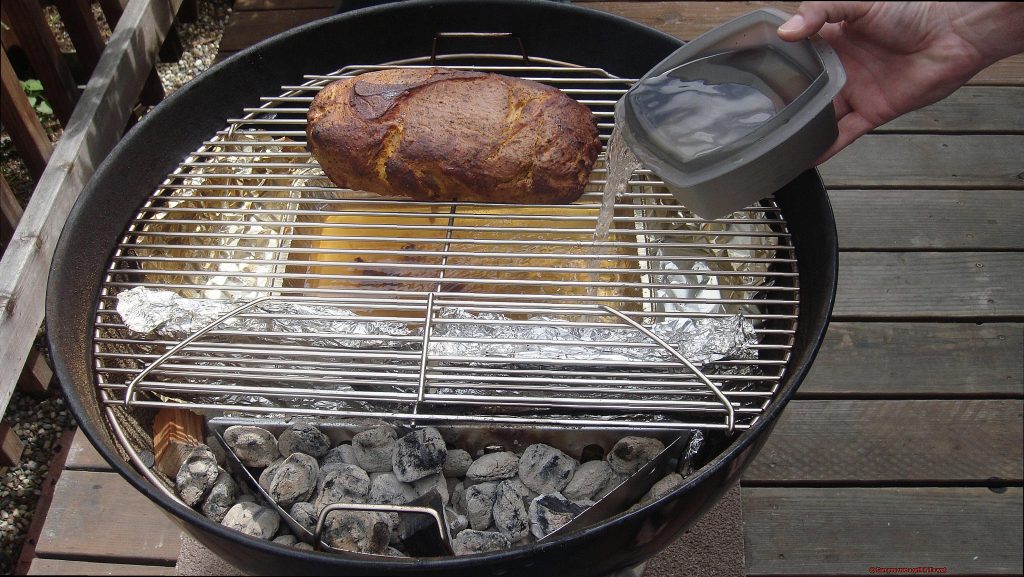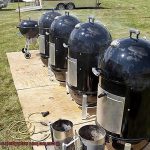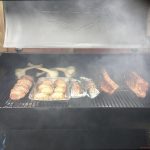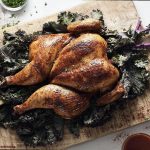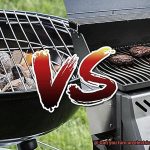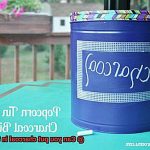Imagine this scenario: You’ve spent the entire day preparing for a summer barbecue party with your closest pals. You’ve marinated the meat, sliced the veggies, and prepped all of your favorite dishes. As you roll out your trusty grill from the garage, you realize that it’s been pouring rain for hours. Your grill is drenched, and there are puddles forming around it.
Naturally, you start to wonder if it’s safe to use a wet grill. Will your food taste different? Is there a risk of electrocution or fire? These are all valid questions that might be racing through your mind.
The good news is that grilling on a wet surface isn’t impossible. With some practical tips and tricks, you can still have a successful cookout even when it’s raining cats and dogs outside.
In this blog post, we’ll dive into everything you need to know about using a wet grill. We’ll debunk common myths and provide practical advice for keeping your food dry and delicious. We’ll also cover the risks associated with grilling on a wet surface and offer techniques to prevent rust and prepare your grill before using it in damp conditions.
Lastly, we’ll share some helpful tips to add to your grilling checklist so that you can host a safe and enjoyable cookout no matter what Mother Nature has in store for you.
Contents
Is It Safe to Use a Wet Grill?
The answer is no. Using a wet grill can be risky and lead to accidents, but with the right precautions, you can safely use a wet grill and still enjoy delicious food.
Water and heat are not friends. When water comes into contact with a hot grill, it can cause steam to build up, resulting in injuries or even an explosion. In addition, a wet grill can cause food to stick and cook unevenly, leading to undercooked or overcooked meals.
To safely use a wet grill, start by drying the grates thoroughly. Use a clean, dry cloth or paper towel to wipe off any excess moisture. If the grill has been exposed to moisture or rain, it is best to let it dry completely before using it again. Covering the grill with a lid or tarp when not in use can also prevent moisture from accumulating on the grates and other parts of the grill.
Keeping the grill clean and free of debris is also vital. Debris can trap moisture and lead to rust and corrosion over time. Make sure all of the grill’s parts are securely in place and functioning properly before using it. It’s also wise to consider the type of fuel you’re using. Charcoal grills can be more difficult to light when wet, so extra lighter fluid or a charcoal chimney starter may be necessary. Gas grills may not be affected as much by moisture, but it’s still essential to check that the fuel lines and connections are dry before igniting the grill.
What Are the Risks of Using a Wet Grill?
Grilling is a favorite pastime for many, but using a wet grill can put you at risk for potentially dangerous situations. As an expert on the topic, I have researched and found several potential risks that could harm you, your food, or your grill.
Firstly, using a wet grill can lead to electrical shock, which is a severe and sometimes fatal injury. If your grill has any electrical components like an ignition system or motor, water can conduct electricity and cause a severe shock if you come into contact with it. It’s crucial to avoid using the grill when it’s wet to prevent any electrical hazards.
Another risk of using a wet grill is the possibility of flare-ups and explosions. When water comes into contact with hot coals or burners, it can cause steam to form rapidly, creating pressure inside the grill. This pressure can lead to the lid blowing off or even causing an explosion. To avoid this risk, always ensure that your grill is completely dry before lighting it up.
Using a wet grill can also affect the taste and quality of your food. The moisture on the grates can prevent your food from developing those coveted sear marks, leading to uneven cooking and poor flavor. Additionally, any excess water on your food can prevent it from browning properly and result in a less flavorful meal.
Lastly, using a wet grill can cause damage to the grill itself. Water can rust the metal parts of your grill, such as the burners or grates, causing them to deteriorate over time. Moreover, excess water on a charcoal grill can extinguish hot coals, making it difficult to maintain a consistent temperature and cook your food correctly.
To avoid these risks, always ensure that your grill is dry before use by wiping down all surfaces with a clean towel or cloth. Keeping your grill clean and free of debris also reduces the risk of fires and explosions.
How Can I Ensure My Grill Is Dry Before Using It?
Not only can it lead to unevenly cooked food, but it can also cause electrical shocks or explosions. Plus, leaving moisture in your grill can cause rust and other damage that shorten its lifespan. So, how can you ensure your grill is dry before using it? Here are some tips to keep in mind.
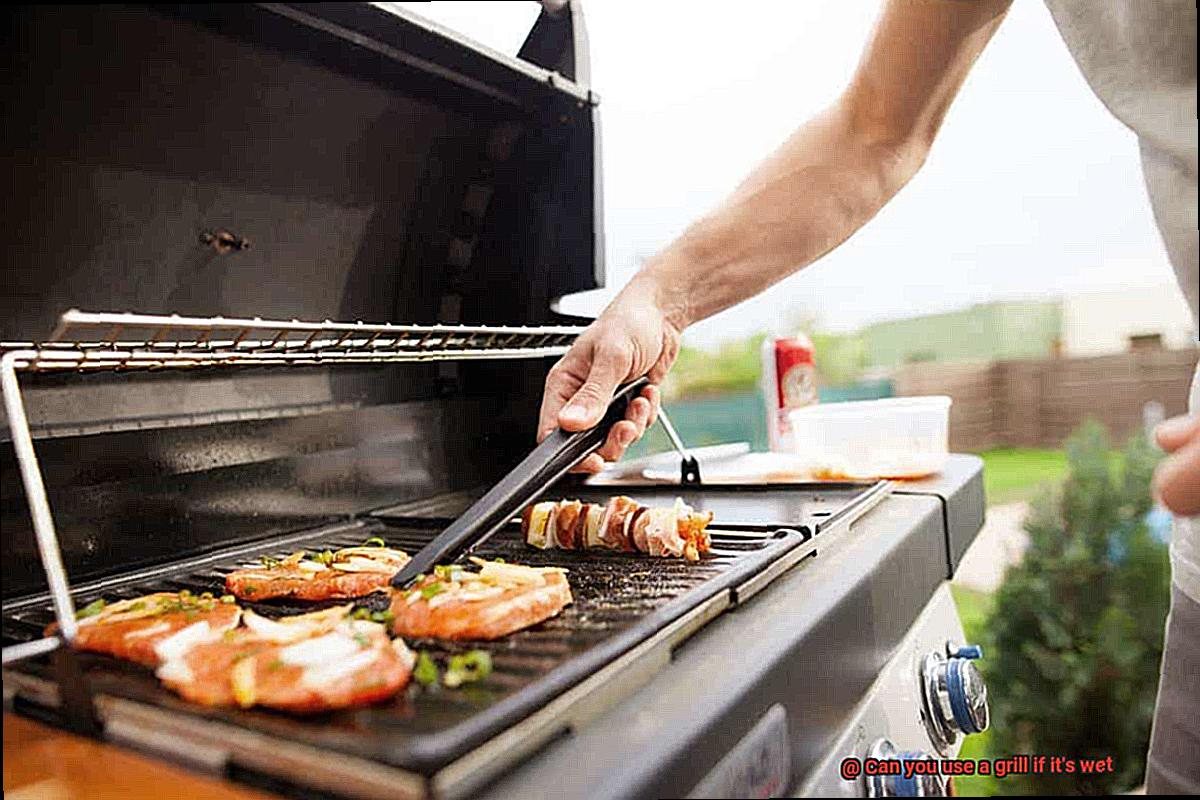
First off, always make sure to clean your grill thoroughly after each use. Use a wire brush to remove any food debris and ash from the grill grates and inside the grill. This will help prevent moisture from getting trapped in the grill and causing issues down the road.
Once your grill is clean, it’s essential to let it air out and dry completely before using it again. Leaving it open for a few hours is usually sufficient, but if you’re short on time, you can use a clean cloth or paper towel to manually dry the inside of the grill. Be sure not to miss any spots, though.
If your grill has been exposed to rain or other moisture, it’s best to wait for a sunny day before using it again. Placing your grill in direct sunlight for a few hours can help speed up the drying process and eliminate any remaining moisture.
To summarize, keeping your grill dry is crucial for safe cooking and extending its lifespan. Here’s a quick checklist of things to keep in mind:
- Clean your grill thoroughly after each use
- Allow your grill to air out and dry completely
- Use a clean cloth or paper towel to manually dry any remaining moisture
- Avoid using your grill if it has been exposed to rain or other moisture
What Should I Consider When Using a Wet Grill?
Don’t let the rain dampen your spirits. With proper precautions, you can safely and effectively use your grill even when it’s wet outside. As an expert on grilling, I’m here to share some tips that will help you make the most out of your grill in any weather.
First things first – safety should always be your top priority. Electricity and water don’t mix well, so it’s crucial to keep all electrical components dry. If you’re using an electric grill, make sure that all electrical connections are properly insulated and protected from moisture. Additionally, plug your grill into a GFCI (Ground Fault Circuit Interrupter) outlet as an added safety measure. This will automatically shut off power in case of an electrical fault.
Another important consideration when using a wet grill is the taste of your food. Wet grates don’t get as hot as they normally would, which can result in undercooked or unevenly cooked food. To avoid this issue, preheat your grill for at least 15 minutes before cooking to ensure that the grates are hot and any excess moisture has evaporated.
Safety is also a concern when using a wet grill because wet surfaces can be slippery. To minimize the risk of accidents like burns or falls, always wear appropriate footwear with good grip and use caution when handling hot objects.
Lastly, consider the type of fuel you’re using. Wet conditions can affect the ability of charcoal or wood pellets to burn properly, resulting in lower cooking temperatures and longer cook times. To avoid this issue, store your fuel in a dry place and only use it when completely dry.
To summarize, here’s a quick checklist of things to consider when using a wet grill:
- Keep all electrical components dry and plug into a GFCI outlet
- Preheat your grill for at least 15 minutes before cooking
- Wear appropriate footwear with good grip and handle hot objects with caution
- Store your fuel in a dry place and only use it when completely dry
Different Types of Fuel and Their Impact on Grilling in Wet Conditions
When it comes to grilling in wet conditions, the type of fuel you use for your grill can have a significant impact on the success of your meal. Let’s take a closer look at the different types of fuel and their impact on grilling in wet conditions.
Gas grills are a popular choice for many grillers, especially in wet conditions. They are quick and easy to use, allowing you to get your grill going in no time. However, heavy rain can affect the heat of the grill, so it’s important to keep the propane tank covered and protected from the elements. Additionally, it’s recommended to have an extra propane tank on hand, just in case you run out of gas mid-grill.
Charcoal grills are another popular option for those who love the smoky flavor that they provide. However, charcoal can be challenging to light and keep burning when wet. To combat this issue, it’s recommended to use a chimney starter to light the charcoal and avoid using lighter fluid, which can be dangerous in wet conditions. Additionally, it’s important to ensure that your charcoal is completely dry before lighting it.
Wood pellet grills have become increasingly popular in recent years because they offer a unique smoky flavor and are relatively easy to use. However, like charcoal grills, they require dry pellets to get started, and heavy rain can cause them to lose heat quickly. To prevent this issue, make sure to keep your wood pellets dry and stored in a waterproof container.
Regardless of which type of fuel you choose for grilling in wet conditions, safety should always be a top priority. It’s crucial to ensure that your grill is completely dry before igniting it, and to take precautions such as using a grill cover or finding a sheltered area to grill in. Additionally, it’s recommended to have grilling tools with long handles to keep yourself at a safe distance from the hot grill.
Tips for Lighting Charcoal Grills in Wet Weather
With these helpful tips for lighting charcoal grills in wet weather, you can still enjoy a delicious barbecue feast.
To start, make sure your grill is clean and dry. Remove any ash or debris from the previous use, and wipe down the grates with a clean cloth. This will prevent moisture from getting trapped and affecting the airflow.
Using a chimney starter is an effective way of lighting charcoal without using lighter fluid. It keeps the coals dry and allows for better airflow. Simply fill the chimney with charcoal, place it on the grill grates, and light a piece of paper underneath it. Within 15-20 minutes, your coals will be ready for grilling.
Quick-light charcoal is another option that has been pre-treated with lighter fluid, making it easier to light in damp conditions. However, this type of charcoal can produce more smoke and affect the flavor of your food.
If you have a propane torch, you can use it to light your charcoal quickly and efficiently. Hold the torch over the coals until they start to turn gray, then remove it and let the coals continue to burn.
Lastly, if you are grilling in light rain or drizzle, cover your grill with a tarp or umbrella to protect it from getting too wet. Just make sure there is enough airflow to keep the fire going.
How to Check Gas Grills for Moisture Before Use
Grilling is a favorite summer activity for many families, but it’s important to prioritize safety when using a gas grill. Moisture buildup can be dangerous and lead to accidents such as flare-ups or explosions. Therefore, it’s essential to check your gas grill for moisture before use. Here are five steps to ensure your grill is dry and safe to use:
Inspect the Exterior
The first step is to check the exterior of your gas grill for any signs of water accumulation or rust. If you see any visible rust or water droplets, it’s best to wait until the grill has dried out before using it.
Wipe Down the Interior
Next, take a paper towel and wipe down the interior surfaces of the grill. If the paper towel comes away wet or damp, then there is still moisture present. In this case, leave the grill uncovered and let it air dry for a few hours before attempting to use it again.
Turn on the Burners
Turn on the burners and let them run for a few minutes. If there is any moisture present, you may see steam or hear a sizzling sound as the water evaporates. If this happens, turn off the burners and let the grill dry out completely before trying again.
Bubble Test
To further test for moisture, mix equal parts dish soap and water in a spray bottle and spray the solution onto the gas line connections and regulator. If there are any leaks, bubbles will form at the site of the leak.
Address Moisture Buildup
Finally, if you do find moisture buildup on your gas grill, it’s crucial to address it before using the grill. This may include cleaning out any water from the drip pan or grease tray, replacing any damaged components, or allowing the grill to dry out completely before use.
Also Read: Can a Weber BBQ Grill Get Wet If left Outside in Rain?
Conclusion
In conclusion, grilling on a wet surface is not impossible, but it does require caution and preparation. The combination of water and heat can be dangerous and lead to accidents like electrical shock or explosions. However, with practical tips and tricks, you can safely use a wet grill and still enjoy your favorite grilled dishes.
To ensure your safety when using a wet grill, take the necessary precautions such as keeping all electrical components dry, preheating the grill for at least 15 minutes before cooking, wearing appropriate footwear with good grip, handling hot objects with care, storing fuel in a dry place, and only using it when completely dry. Additionally, inspecting your gas grill for moisture before use is crucial. Check for signs of water accumulation or rust on the exterior surfaces of the grill. Wipe down the interior surfaces with a paper towel to remove any remaining moisture. Turn on the burners to evaporate any remaining moisture and perform a bubble test to check for leaks in gas line connections and regulator.
Grilling is an enjoyable activity that should not be limited by rain or damp conditions. By following these helpful tips for using a wet grill safely and effectively, you can still host successful cookouts no matter what weather conditions come your way.
So don’t let a little rain dampen your grilling spirit. With these precautions in mind, you can confidently fire up your grill even when it’s wet outside.

